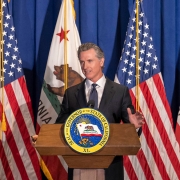Adaption Is The Answer
The world is careening toward a climate crisis, and by that we do not mean nasty weather or impending human extinction. The real challenge lies in adapting to a changing climate without undermining an already stressed global order, not to mention imperiling democracy.
The West’s current policy agenda, based almost entirely on the promotion of “renewable” energy, seems likely to produce only marginal gains while (according to McKinsey) costing $6 trillion annually for the next 30 years, equal to a quarter taxes collected and half of all annual profits worldwide. The question is not so much how we can “fight” climate change but how to do so in a way that does not create other, arguably more disruptive, changes in society and the economy.
Perhaps the biggest obstacle lies in geopolitical realities. In China, India, Vietnam, and much of Africa, the demand for affordable and reliable power has clear priority over achieving “net zero” in the near future. Ultimately what the West does may matter more to its own self-righteousness than the planet itself.
This Is Nothing New
When talking about climate change, there is an assumption that the problem started with industrialization and mass use of fossil fuels. Yet as Voltaire noted in 1740, climate, along with government and religion, are among the three things that “exercise influence over the minds of men.” The current temperature increases, notes environmental historian Peter Frankopan, “are modest in the grand scheme of climate change.”
Civilization first arose during a period with an exceptionally mild climate. Between the seventh and third millennia b.c., notes historian Edward Barbier, the Sahara was green, and the Mediterranean had rain most of the year. In contrast, a shift to colder and drier periods was not caused by SUVs and steel plants, but increased vulcanism, deforestation, overgrazing, and changes in sunspot activity and ocean temperatures.
The “Roman Warm Period,” notes Kyle Harper in The Fate of Rome, was marked by warm weather and ample rainfall. “The climate,” he writes, “was the enabling background of . . . what is known as Pax Romana.” A salubrious climate allowed the Romans to introduce winemaking in England, with vineyards as far north as Northamptonshire and Lincolnshire.
The lower temperatures and greater aridity that characterized the world in the later years of the empire played a key role in its end, relates Harper. The cold weather undermined farming, weakened trade, and made the world’s population more vulnerable to epidemics, creating what Frankopan calls a “cocktail of catastrophe.”
Later on, the period known as the Medieval Warm Period set the stage for the Renaissance. But when temperatures dropped once again, what is known as the Little Ice Age — traced to such factors as volcanic activity and the low sunspot cycles — ushered in a particularly bleak and bloody period, epitomized by major conflicts such as the Thirty Years’ War.
Read the rest of this piece at National Review.
Joel Kotkin is the author of The Coming of Neo-Feudalism: A Warning to the Global Middle Class. He is the Roger Hobbs Presidential Fellow in Urban Futures at Chapman University and Executive Director for Urban Reform Institute. Learn more at joelkotkin.com and follow him on Twitter @joelkotkin.
Hügo Krüger is a South African born Structural/Nuclear Engineer, writer and YouTube podcaster, commentating on topics relating to Energy and Geopolitical Matters, Hügo is married to an Iranian born Mathematician and Artist; the couple resides in Paris.
Homepage photo credit: Fred Hsu via Wikimedia under CC 4.0 License.

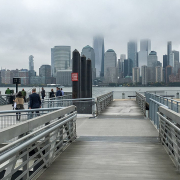
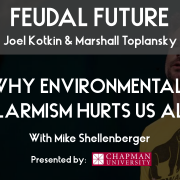
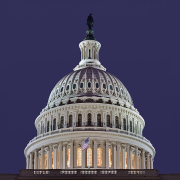
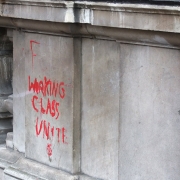 Paul Farmer, republished under CC 2.0 License
Paul Farmer, republished under CC 2.0 License